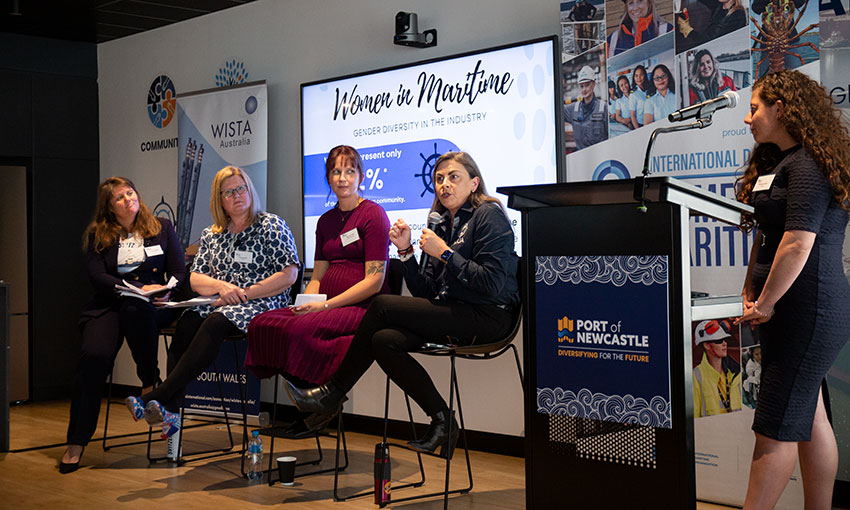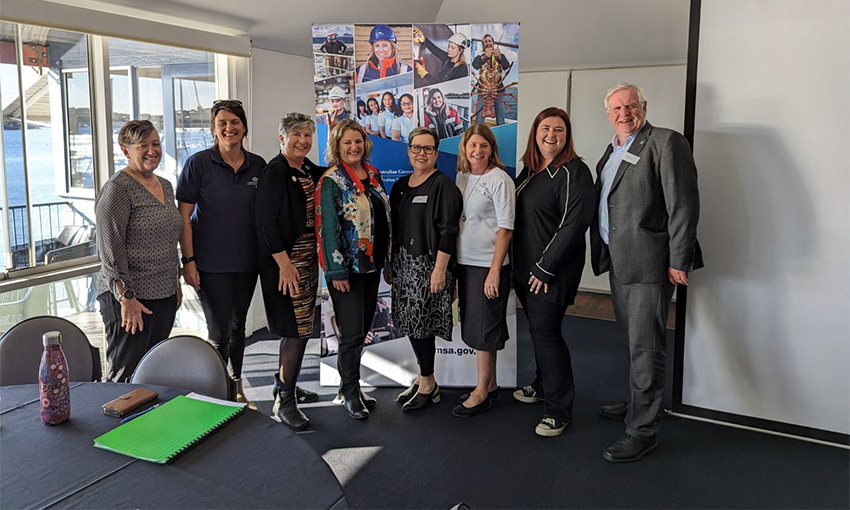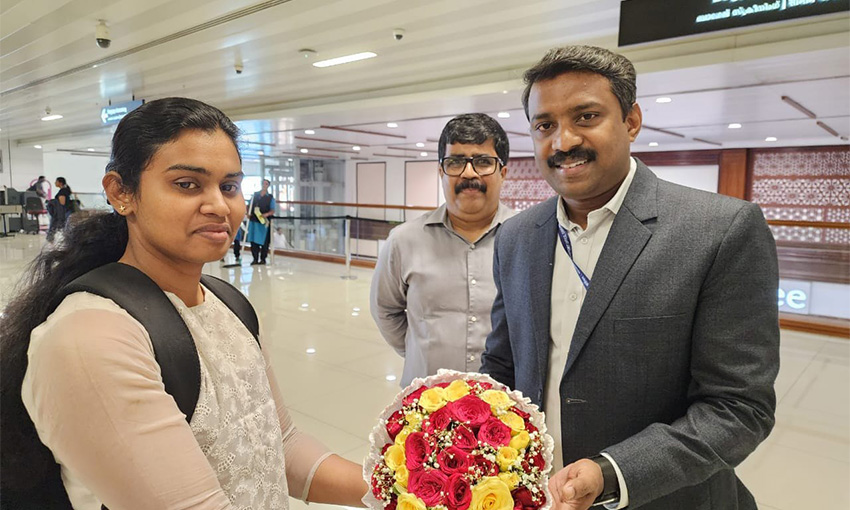THE SECOND International Day for Women in Maritime was marked today in Newcastle with an event where women in the industry shared their stories and ways forward were discussed.
The International Maritime Organisation’s official theme for the day was “mobilising networks for gender equality”. However, the theme for this event, if there was one, would have been “you can’t be what you cant’ see”.
WISTA organised the event, which was held in the offices of the Port of Newcastle. It was attended by more than 300 people around the world via livestream and around 80 people in person.
The discussion centred around panel of four women who work in the maritime industry. Each of the four women shared their stories and thoughts about being a woman in the industry and spoke about the barriers and challenges they had encountered.
The panel was led by WISTA Australia president and Transport for NSW senior manager maritime assets Monika Lemajic. The panel comprised Svitzer lead people and culture partner Emma Yabsley, AMSA manager domestic maritime safety and data policy Dianna Smith, Searoad Shipping deck officer cadet Alies van Driel and MUA women’s liaison officer/national EAS co-ordinator Mich-Elle Myers.
While the discussion covered many very important issues (see the upcoming June issue of the DCN magazine for more coverage), the topic of safety – both physical and mental – was an important one.
The topic came up during the question-and-answer segment where someone watching online asked what was being done in Australia to support the safety of seafarers, particularly women, on international ships.
Former president of the Nautical Institute, educator and advisor Jillian Carson-Jackson responded, saying that the issue of psychological safety onboard is critical because “we need to feel that we’re safe, and we’re not alone”.
“To go specifically to psychological safety, addressing physical assault, psychological assaults, the issues that you have, when you’re on board a vessel, it is really important that we address this and we are taking this head on with work that we’re doing internationally,” she said
“I am part of a group working think tank working out of the States called Cope. And we are focusing on psychological safety and changing the narrative around the personal safety and social responsibility training that all seafarers must do right now in their PSSR [personal safety and social responsibilities training].”
“But there’s nothing really on that social responsibility – giving the skill sets, giving them the confidence for people to be able to speak up.
“We need to have a socially responsible society. And the maritime industry is a melting pot of diversity, we really have that diversity,” she said.
“But we don’t necessarily recognise diversity at an equal level, diversity, equity and inclusion. But beyond that is acceptance. And we’re really working on that.”





